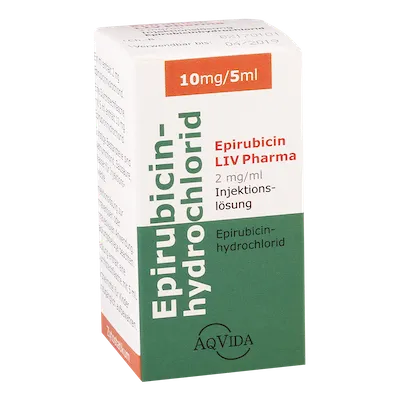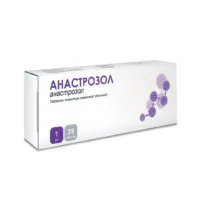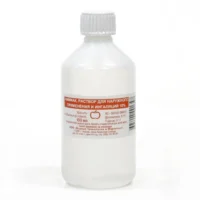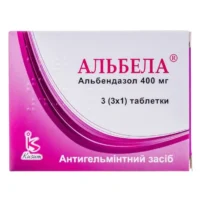Description
Epirubicin Amaxa (Epirubicin) Solution for Injections 2 mg/ml. 5 ml Vial №1
Composition
Epirubicin Amaxa contains epirubicin as the active ingredient. Each milliliter of the solution for injection contains 2 mg of epirubicin hydrochloride.
Mechanism of Action
Epirubicin, a semi-synthetic anthracycline derivative, exerts its antineoplastic effects by inhibiting DNA and RNA synthesis in cancer cells, ultimately leading to cell death.
Pharmacological Properties
Epirubicin Amaxa demonstrates potent antitumor activity through its interference with nucleic acid synthesis, particularly DNA and RNA, in cancer cells.
Indications for Use
Epirubicin Amaxa is indicated for the treatment of various cancers, including breast cancer, stomach cancer, lung cancer, and ovarian cancer.
Contraindications
Patients with a history of severe allergic reactions to epirubicin or any components of the formulation should not use Epirubicin Amaxa.
Side Effects
Common side effects of Epirubicin Amaxa may include nausea, vomiting, hair loss, and myelosuppression. Cardiotoxicity is a serious potential side effect that requires monitoring.
Usage Instructions
Epirubicin Amaxa should be administered intravenously under the supervision of a healthcare provider experienced in chemotherapy. Dosage is individualized based on the patient’s condition and other factors.
Benefits Compared to Analogues
Epirubicin Amaxa offers a well-established efficacy profile in various cancers, supported by clinical evidence of improved survival rates and tumor reduction compared to other chemotherapy agents.
Suitable Patient Groups
Epirubicin Amaxa is suitable for adult patients with the specified cancer types. Special caution is advised in the elderly population and pediatric patients, with dosage adjustments as necessary.
Storage and Shelf Life
Epirubicin Amaxa should be stored according to the manufacturer’s instructions, typically at controlled room temperature. The shelf life of the product is indicated on the packaging.
Packaging Description
Epirubicin Amaxa is supplied in 5 ml vials, each containing a 2 mg/ml solution for injection.
Clinical Evidence and Proven Effectiveness
Epirubicin has been extensively studied in clinical trials, demonstrating its efficacy as a monotherapy and in combination regimens for various cancers. The drug’s mechanism of action and pharmacological properties contribute to its established effectiveness in oncology.





